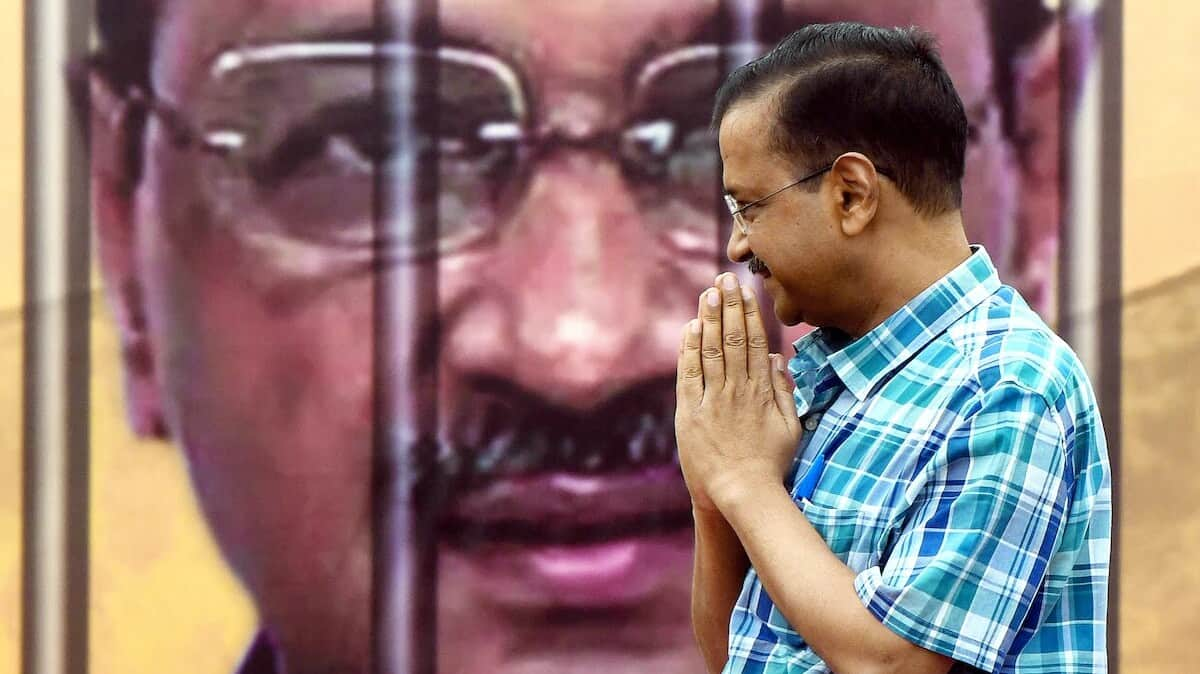
Why Kejriwal will remain in jail despite interim bail
What's the story
The Supreme Court on Friday granted interim bail to Delhi Chief Minister Arvind Kejriwal after he challenged his arrest by the Enforcement Directorate in the money laundering case linked to the now-scrapped excise policy.
However, the CM will remain in jail till July 12 in the Central Bureau of Investigation's probe into the policy.
The bench of Justices Sanjiv Khanna and Dipankar Datta—while granting bail—referred questions regarding the necessity of the arrest to a larger Supreme Court bench.
Custody continues
Hearing on bail plea on July 17
To recall, Kejriwal, without approaching the trial court first, had petitioned the high court for bail in the CBI case, as highlighted by CBI counsel DP Singh before Justice Neena Bansal Krishna on July 5.
The high court had noted this issue would be addressed during arguments.
Now, Kejriwal's bail plea is scheduled for hearing on July 17, alongside his writ petition challenging his arrest and the CBI's three-day remand.
Policy irregularities
Kejriwal granted interim bail twice
Kejriwal was granted interim bail for 21 days in the money-laundering case by the Supreme Court on May 10, allowing him to campaign for the Lok Sabha polls.
Following the elections' conclusion on June 1, he was instructed to surrender by June 2.
Subsequently, the Aam Aadmi Party chief received bail from a Delhi trial court on June 20 in the same case.
Legal queries
ED's appeal against Kejriwal's bail
A day later, the ED filed an appeal in the Delhi High Court, arguing that the bail decision was "perverse," "one-sided," and based on irrelevant facts.
On June 21, the high court issued an interim stay on the bail order pending a decision on the ED's application. This stay was further detailed in an order on June 25.
On June 26, Kejriwal was arrested by the CBI in excise policy case.
Background
Excise policy case explained
Central probe agencies have alleged irregularities in modifying Delhi's excise policy for 2021-22, granting undue benefits to license holders.
In November 2021, the Delhi government introduced a new liquor policy, ceasing sales through government outlets and allowing private entities to apply for licenses to operate stores.
The government claimed this policy would curb black marketing, boost revenue, and benefit consumers.
However, the Delhi government later reverted to the old policy.
Kejriwal and the AAP have denied any wrongdoing.